From left to right and everything in between, this is the battleground where politicians fight not just for votes but for the future of their ideals.
Omar Abdullah
At the center of the current political landscape in Jammu and Kashmir stands Omar Abdullah, a prominent leader and former Chief Minister of the state. He is the Vice President of the National Conference (NC), a party deeply rooted in the region’s politics. Born into the Abdullah family, a household that has long shaped the political narrative of the region, Omar has built his political career on a platform that emphasizes the autonomy and unique regional identity of Jammu and Kashmir. Over the years, he has worked to solidify the NC’s agenda, which continues to champion greater self-governance for the region.
Since the bifurcation of Jammu and Kashmir in 2019 and the abrogation of Article 370 by the Union government, Omar Abdullah has been a vocal critic. He views the removal of the state’s special status as a severe infringement on the political rights of the people of Jammu and Kashmir. He has frequently condemned the move, calling it an “unconstitutional step” and an assault on the region’s distinct identity. His political campaign focuses on restoring the sovereignty of Jammu and Kashmir, re-establishing peace, and ensuring that governance reflects the region’s cultural and political fabric.
Omar Abdullah’s message has resonated with many in the Kashmir Valley, where feelings of disenfranchisement and alienation have intensified since 2019. His goal to reverse the nullification of Article 370 has become a key part of his political strategy, drawing significant support from those who feel that the region’s autonomy has been unfairly stripped away.
Despite his popularity among certain sections of the electorate, Abdullah faces criticism from detractors who argue that his party, the NC, is out of touch with the aspirations of the younger generation. Some even accuse the NC of being a “B-team” of the ruling Bharatiya Janata Party (BJP), claiming it is being used to divide the opposition vote in the region. Omar, however, has rejected such allegations, consistently asserting that the NC remains a staunch defender of Kashmiri identity and a strong voice of opposition.
In a significant political development, Omar Abdullah has recently submitted his nomination papers for the upcoming Jammu and Kashmir assembly elections. He is contesting from two constituencies: Budgam in central Kashmir and Ganderbal, a family stronghold. These constituencies are scheduled to participate in the second phase of a three-stage voting process on September 25.
Explaining his decision to contest from Budgam, Omar emphasized that his candidacy signals the strength of the National Conference. He confidently stated, “Contesting from Budgam shows that the NC is not weakened; it demonstrates our strength. If there were any concerns about running from Budgam, my party would not have endorsed my candidacy. The NC enjoys strong support throughout J&K.” He also expressed optimism about the NC’s prospects, highlighting that the party, along with its ally Congress, is well-positioned for victory. He further emphasized that the new assembly would bring to light the consequences of decisions made against Jammu and Kashmir in recent years.
In Ganderbal, where the Abdullah family has maintained a political stronghold since 1977, Omar faces competition from Sheikh Ashiq, an independent candidate representing Baramulla MP Rashid’s Awami Ittehad Party, and Bashir Ahmad Mir of the People’s Democratic Party (PDP), led by former Chief Minister Mehbooba Mufti.
The Abdullah family’s political legacy in Ganderbal began with Sheikh Abdullah, followed by his son Farooq Abdullah, and later Omar himself, who won the seat in 2008 after losing in 2002. Omar’s decision to contest in the upcoming elections marks a shift from his earlier stance, as he had previously pledged not to participate in elections until Jammu and Kashmir’s full statehood was restored. Addressing the criticism he faced for this reversal, Omar admitted, “Avoiding the elections was a mistake. Asking for votes while not being a candidate myself felt contradictory.
Farooq Abdullah
With Omar Abdullah opting out of the upcoming Jammu and Kashmir assembly elections, the political spotlight has shifted to veteran leader Farooq Abdullah. In his 80’s, Farooq Abdullah’s extensive political experience and deep-rooted connections within the region’s political landscape position him as a formidable figure. Nevertheless, concerns about his health have emerged, casting uncertainty on his ability to fulfill the demanding responsibilities of the Chief Minister’s role.
Despite these health-related concerns, Farooq Abdullah continues to be a significant and active force within the National Conference (NC). Recently, he suggested the possibility of making a comeback as Chief Minister should the NC emerge victorious in the elections. “I am not done yet,” he asserted, reaffirming his dedication to the party’s cause despite his son Omar’s decision to remain out of the political contest until the statehood of Jammu and Kashmir is restored.
Farooq Abdullah’s ongoing engagement and his anticipated role as the campaign leader underscore his enduring influence within the party. “Farooq sahib will spearhead the campaign and might eventually transfer leadership to a younger successor,” an NC insider disclosed. This statement indicates a strategic approach that blends experienced leadership with forward-looking planning for the party’s future.
As the political dynamics evolve, all eyes are on Farooq Abdullah to determine whether he will become the NC’s candidate for the Chief Minister’s position. His candidacy will hinge on both his health and the internal dynamics of the party. For the time being, Farooq Abdullah remains a pivotal figure in shaping the party’s trajectory and navigating the complex electoral landscape.
Mehbooba Mufti
Mehbooba Mufti, the current president of the People’s Democratic Party (PDP), finds herself entrenched in a challenging political battle. Once a key ally of the Bharatiya Janata Party (BJP) within the Jammu and Kashmir state government, Mufti’s relationship with the saffron party soured dramatically following the abrogation of Article 370—a move she vehemently opposed. The political fallout from this action resulted in her imprisonment for over a year, marking a significant turning point in her political journey. Her release from detention has since launched her into a renewed struggle for political relevance.
Mufti has strategically positioned her campaign around the theme of resistance, portraying herself as a staunch defender of Jammu and Kashmir’s rights. Central to her campaign are her efforts to restore Article 370, protect the region’s demographic integrity, and advocate for political autonomy. Frequently invoking the legacy of her father, Mufti Mohammad Sayeed, Mufti emphasizes his vision of a “healing touch” policy designed to foster peaceful coexistence among Jammu, Kashmir, and Ladakh. However, critics contend that the PDP is showing signs of disintegration, alleging that the party has eroded its core support base. Accusations persist that the PDP acted as a surrogate for the BJP during their coalition government, with some opposition voices accusing Mufti of sacrificing the region’s political autonomy in exchange for power. Despite these criticisms, Mufti’s efforts to galvanize public support resonate with certain segments of the population.
In a recent statement, as reported by PTI, Mehbooba Mufti articulated her party’s primary objectives for participating in the Jammu and Kashmir assembly elections. She emphasized that the PDP’s campaign is designed not merely to address infrastructure needs but also to challenge the BJP’s attempts to obscure the Kashmir issue and the significance of Article 370. “Our participation in these elections is about more than just improving basic infrastructure,” Mufti declared. “The BJP’s efforts to marginalize the Kashmir issue and Article 370 are problematic. We believe that resolving the Kashmir issue is essential and should not be overshadowed by mere electoral rhetoric.”
Mufti criticized the BJP for its decade-long failure to hold elections in Jammu and Kashmir, despite the party’s assertions of improving conditions. She underscored the growing frustration among voters who are eager for a government capable of addressing their concerns and alleviating their difficulties. In response to Prime Minister Narendra Modi’s criticism of political dynasties, Mufti questioned the Prime Minister’s unfulfilled promises, such as depositing ₹15 lakh into each citizen’s bank account and creating two crore jobs annually. “Has he delivered on these promises? I have nothing further to add except to question the credibility of such statements,” Mufti remarked.
Furthermore, Mufti outlined the PDP’s plans if elected, which include a streamlined recruitment process to fill approximately one lakh government positions with transparency. The PDP aims to offer permanent status to daily wagers and attract multinational companies to the region to enhance employment opportunities.
Iltija Mufti
Iltija Mufti, the PDP candidate representing the Bijbehara assembly constituency and daughter of the former Chief Minister Mehbooba Mufti, has voiced her strong commitment to addressing the widespread insecurities and anxieties that have plagued the residents of Jammu and Kashmir. As the third generation of the influential Mufti family to venture into politics, Iltija underscores her determination to restore hope, security, and dignity to the beleaguered region.
In a recent interview with a prominent national news agency, Iltija Mufti conveyed her resolve to become a beacon of hope for the people who have endured prolonged periods of uncertainty and hardship. “For the past five years, the people of Jammu and Kashmir have been left in a state of despair,” she said. “The youth are grappling with severe unemployment issues, and the cost of living continues to escalate. It is my foremost responsibility to provide them with a renewed sense of security and to rekindle their hope for a better future.”
Addressing the contentious issue of the abrogation of Article 370, Iltija Mufti made it clear that the PDP continues to hold significant value in the eyes of the public. She refuted claims that her party was responsible for the removal of the article, describing such assertions as misinformed. In response to criticisms from National Conference Vice President Omar Abdullah, she suggested that Abdullah’s remarks should be viewed critically, attributing his statements to the pressures of contesting in multiple constituencies.
Iltija further emphasized the PDP’s pledge to restore statehood to Jammu and Kashmir, placing the onus for this matter on the central BJP government. “It is imperative to hold the BJP accountable,” she remarked. “They made a promise to deposit ₹10 lakh into each citizen’s bank account, yet this commitment remains unfulfilled.”
The Jammu and Kashmir assembly elections are set to unfold in three phases: September 18, September 25, and October 1, with the counting of votes scheduled for October 8. The region boasts 88.06 lakh eligible voters across 90 constituencies, which include reserved seats for Scheduled Castes (SCs) and Scheduled Tribes (STs). In the previous election cycle, the PDP secured 28 seats, the BJP obtained 25, the National Conference captured 15, and the Congress won 12 seats.
Engineer Rashid
Engineer Rashid of the Awami Ittehad Party (AIP) is widely recognized for his forthright and candid expression of the Kashmiris’ demands. Known for his unyielding stance against the dominant mainstream political parties, Rashid portrays himself as a staunch advocate for the common people. He frequently criticizes the National Conference (NC) and the People’s Democratic Party (PDP) for their failure to meet the genuine aspirations of the people of Kashmir.
Rashid’s political career is characterized by his focus on grassroots issues, particularly regional underdevelopment, unemployment, and the special status of the region. His central political agenda is the self-determination of Kashmir, a stance that has endeared him to dissidents from mainstream parties. Rashid’s often contentious relationship with the political establishment and his critical stance on the governance of Kashmir by India have placed him at odds with the mainstream political factions. Although his party is relatively small compared to others, it has garnered notable support, especially in rural areas.
Despite his popularity, Rashid faces significant opposition. Critics have labeled him as a “proxy” and accused him of advancing separatist narratives, which they argue dampens electoral enthusiasm among certain segments of the electorate. Nonetheless, Rashid remains undeterred, with some supporters viewing him as a resolute defender of rights who refuses to compromise on fundamental issues.
In a strategic political move, the Awami Ittehad Party, led by Lok Sabha MP Sheikh Abdul Rashid—commonly known as Engineer Rashid—has recently formed an alliance with former members of the banned Jamaat-e-Islami (JEI) in anticipation of the Jammu and Kashmir assembly elections. During a recent joint meeting, the AIP delegation, led by Inam Un Nabi, and the JEI delegation, headed by Ghulam Qadir Wani, discussed their collaboration. Despite the Indian government’s 2019 ban on Jamaat-e-Islami, which has now been extended for another five years, several former JEI leaders are running as independent candidates with the backing of this newly formed alliance.
An AIP spokesperson highlighted that the alliance’s goal is to achieve a “resounding victory” for both AIP and JEI-supported candidates. According to the terms of this agreement, AIP will support JEI candidates in key districts such as Kulgam and Pulwama, while JEI will back AIP candidates in other constituencies. In areas where both parties have candidates, including Langate, Devsar, and Zainapora, they have agreed to engage in a “friendly contest.”
The spokesperson underscored that the alliance reflects both parties’ recognition of the importance of unity in addressing the Kashmir issue and fostering long-term peace in the region. This strategic partnership signifies the evolving political landscape and the need for cooperative engagement from both factions.
In related developments, Sheikh Rashid, who has been granted interim bail to campaign, has strongly refuted claims that he is acting as a proxy for the Bharatiya Janata Party (BJP). Rashid argued that his success in the general elections mirrors public discontent with the Modi government’s ‘Naya Kashmir’ initiative, and he has sharply criticized his opponents as “puppets” and “rubber stamps.
Sarjan and Sugra Barkati
Sarjan Barkati, often referred to with affection as “Freedom Chacha” due to his fervent and evocative slogans during the tumultuous 2016 unrest in Kashmir, has become a notable figure of resistance in the region. His impassioned advocacy and active participation in the protests not only made him a prominent voice but also cemented his status in the political landscape of Kashmir. Despite his influential role, Barkati’s activism has come with significant legal repercussions. He was initially arrested in October 2016 and spent four years in custody before being released. His troubles did not end there, as he faced arrest again in August 2023, this time related to allegations of terror funding, a charge that also led to the detention of his wife.
In a significant development, his daughter, Sugra Barkati, has emerged in the political arena by filing nomination papers to represent her father’s interests in the Zainpora Assembly constituency in Shopian. Sugra Barkati, who has maintained a relatively low profile until now, is stepping into the limelight in a bid to continue her father’s political legacy. This move adds a new layer of complexity to the electoral landscape, as it not only signifies the continuation of the Barkati family’s involvement in Kashmiri politics but also raises questions about her approach to the campaign and the challenges that lie ahead.
Moreover, the political scene is further complicated by the participation of several former members of the banned Jamaat-e-Islami Jammu and Kashmir, who have also submitted their nomination papers as independent candidates for the upcoming Assembly elections. The ban, imposed by the Union Home Ministry, has prevented Jamaat-e-Islami from directly engaging in the electoral process. Nevertheless, the organization had previously expressed an interest in participating in Lok Sabha elections should the ban be lifted. Notably, Jamaat-e-Islami has been absent from electoral contests since 1987 and was a part of the separatist Hurriyat Conference, which advocated for election boycotts from 1993 to 2003.
Sajad Lone
Sajad Lone, leader of the People’s Conference, has steadily risen as a pragmatic political figure in the complex and often volatile landscape of Jammu and Kashmir politics. Known for his adaptability, Lone has set his sights on steering through the chaotic dynamics of regional politics with a focus squarely on governance and development, prioritizing tangible issues over rhetoric.
Once a staunch advocate for hardline positions on autonomy and the rights of Kashmiris, Lone has transformed over the years into a more moderate leader. He now appears willing to work within the Indian constitutional framework, emphasizing practical outcomes for the region’s welfare. His shift reflects a broader strategy aimed at addressing the pressing needs of the population, especially in areas like economic development, job creation, and infrastructure improvement.
Lone’s campaign is centered on pragmatic issues that resonate with the everyday lives of the people. His party has carved out a niche by appealing to citizens disillusioned with the traditional political elite but eager for a realistic alternative that can deliver concrete results. His flexible approach to policymaking, focusing on practical solutions rather than ideological rigidity, has garnered a substantial following. However, this very flexibility has also drawn criticism. While some view him as a leader willing to compromise for the greater good, others accuse him of being too accommodating, especially on core issues like regional autonomy, thereby alienating parts of his base.
There has also been persistent speculation and allegations that Lone serves as a “proxy” for external forces, particularly the Bharatiya Janata Party (BJP), due to his relatively amicable relations with the central government. Critics suggest that his political maneuvering is influenced by outside forces, a claim that has sparked considerable debate. However, Lone has consistently denied such accusations, insisting that his sole focus remains the betterment of the lives of ordinary Kashmiris. He has emphasized that his cooperation with the central government is motivated by the desire to bring development and prosperity to the region, rather than any external affiliations.
Despite the controversy surrounding his leadership, Lone continues to position himself as a leader capable of navigating the intricacies of Jammu and Kashmir’s political landscape, offering a vision that blends governance, development, and a pragmatic approach to resolving long-standing issues.
Ghulam Nabi Azad
As the assembly elections in Jammu and Kashmir draw near, veteran politician Ghulam Nabi Azad finds himself navigating an increasingly challenging political landscape. Once a stalwart in the Indian National Congress, Azad now faces both political isolation and accusations of being a “BJP proxy” as he leads his recently formed Democratic Progressive Azad Party (DPAP). Founded in September 2022, after his dramatic exit from Congress, the DPAP has struggled to gain a strong foothold in the electoral campaign, casting doubts on Azad’s ability to sway voters and influence the outcome.
In the Jammu region, particularly in Doda, a politically significant district, Azad’s party is encountering substantial difficulties. On a recent visit to Thathri, a small market town located about 30 kilometers from Doda, DPAP supporters voiced their concerns over the party’s lackluster campaign. The frustration was palpable, with many feeling that their expectations had not been met. Abdul Majid Wani, the DPAP candidate contesting for the Doda constituency, brings with him a political pedigree as a former Congress leader who successfully held the seat in both 2002 and 2008. However, despite Azad’s active campaigning for Wani in the crucial days leading up to the first phase of voting on September 18, the enthusiasm from the electorate appears muted.
The DPAP has been marred by a series of internal challenges. A notable number of defections have weakened its ranks, and the party’s disappointing performance in the recent Lok Sabha elections has further dampened spirits. Azad himself has been dealing with health concerns, which resulted in the withdrawal of four DPAP candidates in Jammu’s Chenab valley, a region that once formed the bedrock of Azad’s political influence. These setbacks have compounded the party’s struggles, casting a long shadow over its prospects.
During his brief appearance in Thathri, Azad addressed his supporters with a call for unity and a plea to reject communal politics. He reiterated his promises to provide free rations and electricity for the poor, while also reminding voters of his achievements during his tenure as the chief minister of Jammu and Kashmir. Despite these efforts, however, DPAP’s campaign lacks the vigor of its competitors. The party’s presence and appeal seem subdued in comparison to more established political forces like the National Conference (NC) and the People’s Democratic Party (PDP), both of which enjoy wider visibility and stronger grassroots networks.
The DPAP is contesting around 19 seats, primarily concentrated in the Jammu region. For Azad, securing a few key victories could prove critical. It would not only keep his political ambitions alive but could also give him leverage in potential post-election coalition negotiations. Predicting a hung assembly, Azad has maintained that no single party or alliance will secure an outright majority, positioning himself as a possible kingmaker in such a scenario. Yet, the reality on the ground suggests a different story. Many of his critics, and even some within his own camp, are questioning the effectiveness of his leadership and the strength of his campaign.
Accusations of being a proxy for the Bharatiya Janata Party (BJP) have further complicated Azad’s political narrative. He has firmly rejected these claims, insisting that they are baseless and politically motivated. Nevertheless, these allegations have hurt his image, especially in regions like the Chenab valley, where voters are deeply sensitive to issues of identity and autonomy. As the elections approach, the future of both Azad’s political career and the DPAP hangs in the balance. The results will determine whether Azad can carve out a new chapter in his long political journey or if the DPAP will fade into obscurity amid fierce competition from more established players in the Jammu and Kashmir political arena.
Jamaat-e-Islami
Despite being officially banned by the government, Jamaat-e-Islami (JeI) continues to wield significant influence as a potent ideological force in the region. Over the decades, the organization has championed the peaceful settlement of the Kashmir issue, and while it may no longer be a direct player in the political arena, its impact remains undeniable. Jamaat exerts influence through its robust organizational structure and extensive religious outreach, particularly in rural areas, where its social and educational programs have garnered widespread goodwill.
Although Jamaat itself is not contesting the upcoming elections, its ideological sway looms large over the political landscape. Many of the candidates running are believed to receive tacit support from Jamaat sympathizers, a factor that could prove decisive in swaying voters, especially in rural constituencies.
In a strategic political move, the banned Jamaat-e-Islami and the Awami Ittehad Party (AIP) have forged a pre-poll alliance ahead of the Assembly elections in Jammu and Kashmir. This coalition aligns with growing regional sentiment against the traditional political parties of the area. While Jamaat is not fielding candidates directly, it is backing independents, and AIP has pledged its support to these candidates. The alliance was solidified during a meeting between AIP leader and Member of Parliament Engineer Rashid, and a Jamaat delegation led by Ghulam Qadir Wani, who heads an electoral decision-making panel within the organization.
An AIP spokesperson stated that the alliance aims to “champion the cause of the people of J&K” amid the current political climate. Both groups have agreed to support each other’s candidates in specific constituencies—AIP will back Jamaat candidates in Kulgam and Pulwama, while Jamaat will reciprocate for AIP across other areas of Kashmir. In constituencies like Langate, Devsar, and Zainapora, a friendly contest is expected, though in other regions, mutual support will help create a coordinated strategy for the elections.
Leaders from both sides emphasized the urgency of unity, at least temporarily, to address the Kashmir issue and maintain peaceful relations amidst rapidly shifting local and global political dynamics. This alliance poses a significant challenge to the prospects of the People’s Democratic Party (PDP) and the National Conference (NC), particularly in South Kashmir, where Jamaat has previously been accused of supporting PDP candidates. The shifting alliances and ideological undercurrents suggest a reshaping of the political landscape in the region.
Altaf Bukhari
Syed Altaf Bukhari is set to lead the Jammu and Kashmir Apni Party (JKAP) into its inaugural Assembly election, bringing with him a wealth of political experience and ambition. Confident of securing victory in the Chanapora constituency—a seat he previously represented from 2014 to 2018 under the Amira Kadal banner—Bukhari is now running as an independent candidate with his own party. This marks a significant shift for Bukhari, who established JKAP in 2020 after parting ways with the Peoples Democratic Party (PDP).
The forthcoming election represents a critical juncture for both Bukhari and JKAP. The party emerged from a split within PDP, which itself followed a wave of resignations from the Indian National Congress. Bukhari, a prominent businessman in Kashmir, first gained prominence through his ventures in agriculture and food processing. He expanded his father’s pesticide company across India and later diversified into apple processing in collaboration with a German firm.
Bukhari’s political career began in 2014 when he won the Amira Kadal seat on a PDP ticket. Throughout his tenure, he held several influential positions, including Minister for Roads and Buildings, Floriculture, Education, and Finance under the leadership of Mufti Mohammad Sayeed. However, following Sayeed’s death in 2016 and the subsequent rise of Mehbooba Mufti as Chief Minister, Bukhari was excluded from the Cabinet.
In 2019, Bukhari faced expulsion from PDP on charges of “anti-party activities” and alleged pursuit of personal political ambitions. His name had surfaced as a potential Chief Minister candidate during internal party discussions about a possible alliance with the National Conference and Congress after the collapse of the BJP-PDP coalition in 2018.
In March 2020, Bukhari founded JKAP, rallying around 30 former PDP, INC, and other members. The party aims to advocate for Jammu and Kashmir’s statehood and protect residents’ rights regarding property and employment opportunities. Bukhari, as the party’s chief, has emphasized JKAP’s commitment to moving beyond the entrenched family-based politics of the National Conference and PDP, focusing instead on addressing the common concerns of the people.
Mushrooming of Independent Candidates
In the ongoing Jammu and Kashmir assembly elections, a notable trend has emerged: over 40% of the 908 candidates are running as Independents. This high percentage has drawn sharp criticism from political heavyweights, including the National Conference (NC), Congress, and People’s Democratic Party (PDP). They allege that many of these Independent candidates are being covertly backed by the Bharatiya Janata Party (BJP) in a strategic move to split votes and weaken their chances. These elections, significant for several reasons, are the first since the abrogation of Article 370 in 2019, which saw the reorganization of Jammu and Kashmir into two Union territories.
The political landscape has also changed following the 2022 delimitation exercise, which increased the number of seats in the assembly from 87 to 90. Of these, 47 seats are now in the Kashmir Valley, and 43 are in the Jammu region. The unprecedented number of Independent candidates—365 in total—has raised eyebrows, particularly among opposition parties, who claim this is part of a larger strategy by “Delhi” to disrupt traditional voting patterns. This surge in Independents marks the second-highest number in the region’s electoral history, second only to the 2008 elections, when 468 Independents contested following the Amarnath land row agitation.
In the previous assembly elections held in 2014, 831 candidates entered the fray, including 274 Independents. This year, the Jammu division, a BJP stronghold, has 367 candidates vying for 43 seats, while 541 candidates are competing for 47 seats in the Kashmir Valley. On average, five Independent candidates are contesting each of the Valley’s 47 constituencies, compared to 2.93 per seat in Jammu. The constituency of Sopore, once a militancy hotspot with a history of election boycotts, now stands out with the highest number of candidates—22 in total, including 14 Independents. Among the contenders is Ajaz Guru, brother of Afzal Guru, who was convicted in the 2001 Parliament attack case. In Bandipora’s Sonawari segment, 20 candidates are running, 11 of whom are Independents. This region is notable for its historical ties to Jamaat-e-Islami, adding another layer of complexity to the contest.
However, not all constituencies have seen a surge in Independents. Four constituencies—Budhal, Kangan, Ramnagar, and Srigufwara-Bijbehara—have no Independent candidates. In Srigufwara-Bijbehara, located in Anantnag, only three candidates are running, one of whom is Iltija Mufti, daughter of PDP leader Mehbooba Mufti. In contrast, other constituencies like Doda West, Nowshera, and Ramgarh only have one Independent candidate each. Among the high-profile candidates, BJP’s Jammu and Kashmir president Ravindra Raina, a potential chief ministerial contender, is contesting from Nowshera.
Mehbooba Mufti has been vocal about her concerns, alleging that many of these Independents were “put forward by Delhi” to fracture the vote. She called for unity, stating, “We need to stay united so these Independents, supported by Delhi, do not succeed in dividing us.” NC vice president Omar Abdullah, running from both Ganderbal and Budgam, echoed similar sentiments, accusing the central government of using Independents to stifle his influence. “No politician in Jammu and Kashmir, particularly in Kashmir, is being targeted as much as I am,” he remarked. Ganderbal, where Abdullah is contesting, has 15 candidates, seven of whom are Independents. Among them is Sarjan Ahmad Wagay, also known as Barkati, a separatist leader currently jailed.
Congress president Mallikarjun Kharge also raised alarms over the surge in Independent candidates, suggesting they were financially supported by the BJP to weaken the Congress-NC alliance. “The Congress and NC are fighting together, and this has made the BJP nervous. Now they’re trying to weaken our alliance by supporting Independents. Otherwise, where do these candidates get the money to run their campaigns?” Kharge questioned during a recent visit to Kashmir. His remarks reflect the mounting concerns among opposition leaders that these Independents may play a decisive role in shaping the outcome of the elections, adding a layer of unpredictability to an already charged political environment.
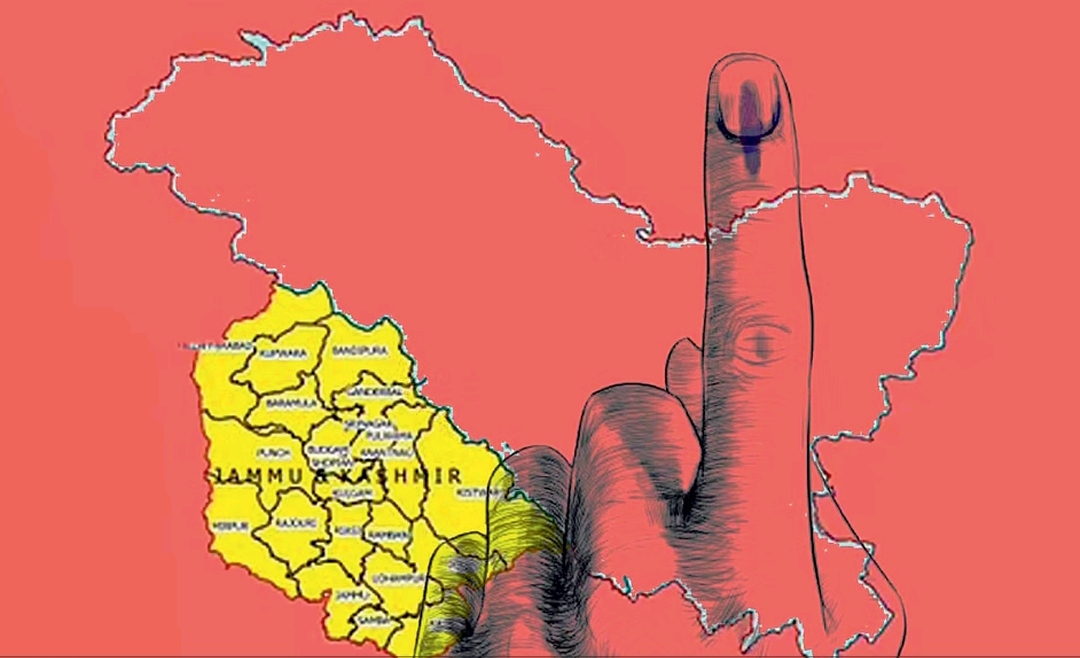
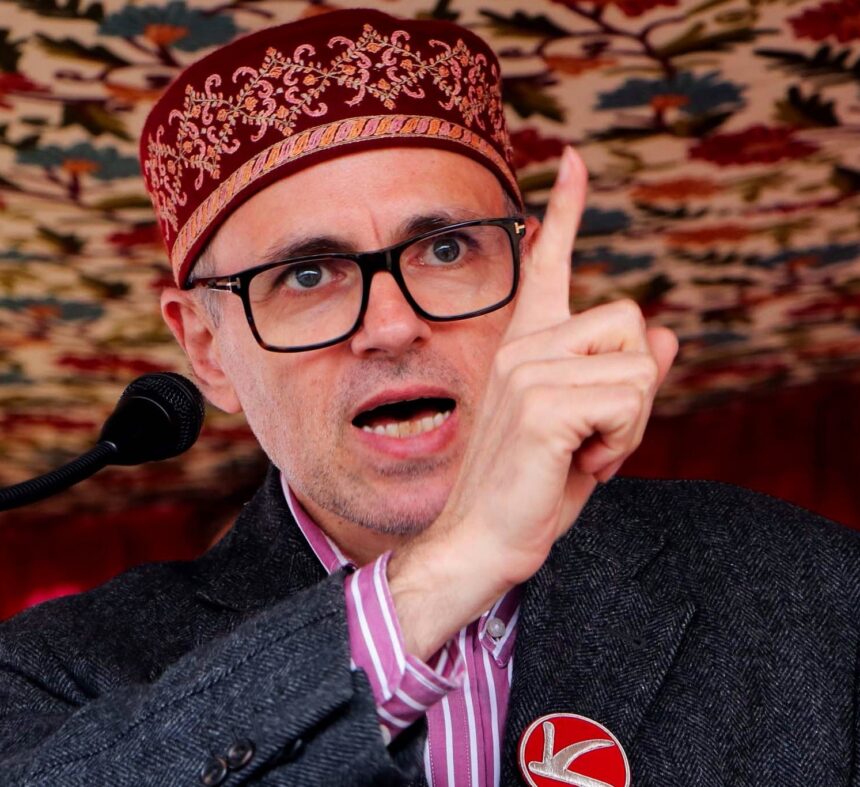
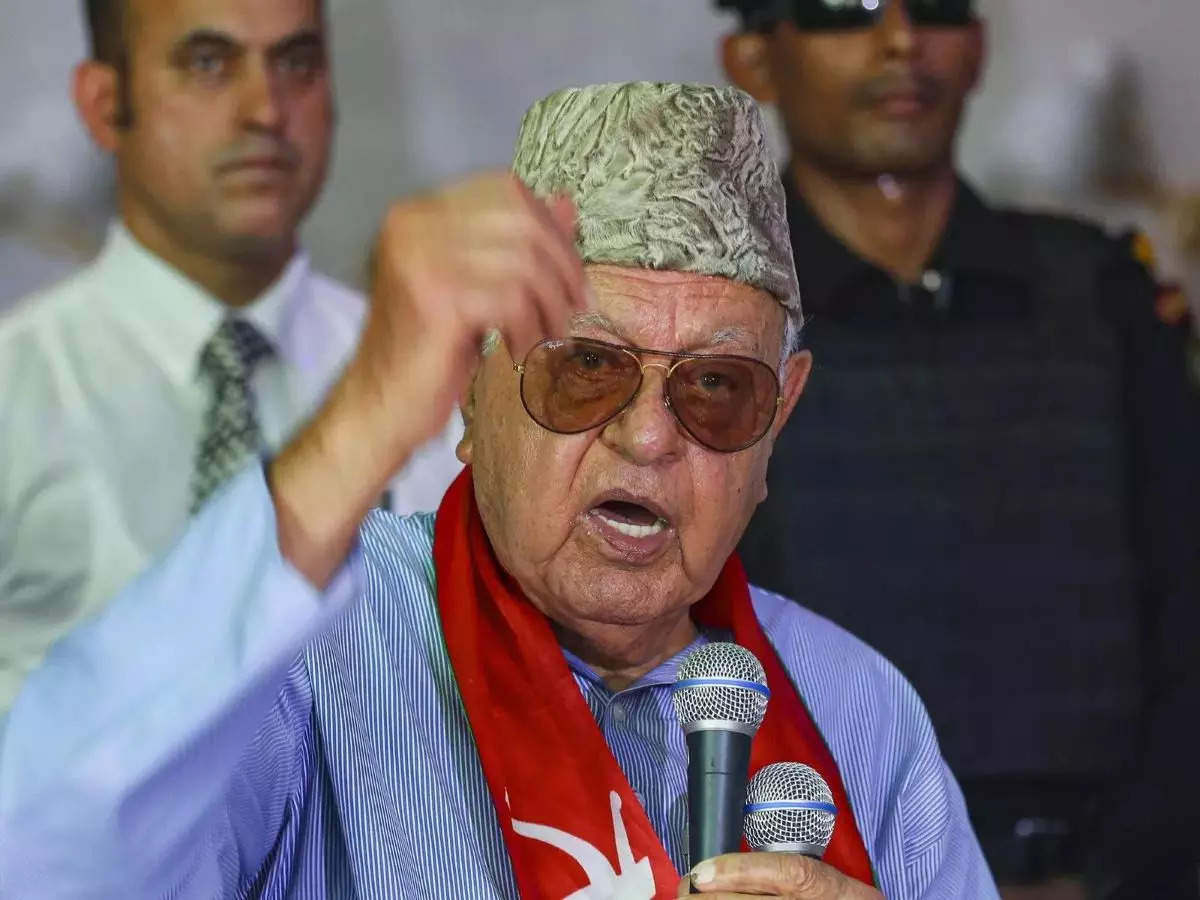
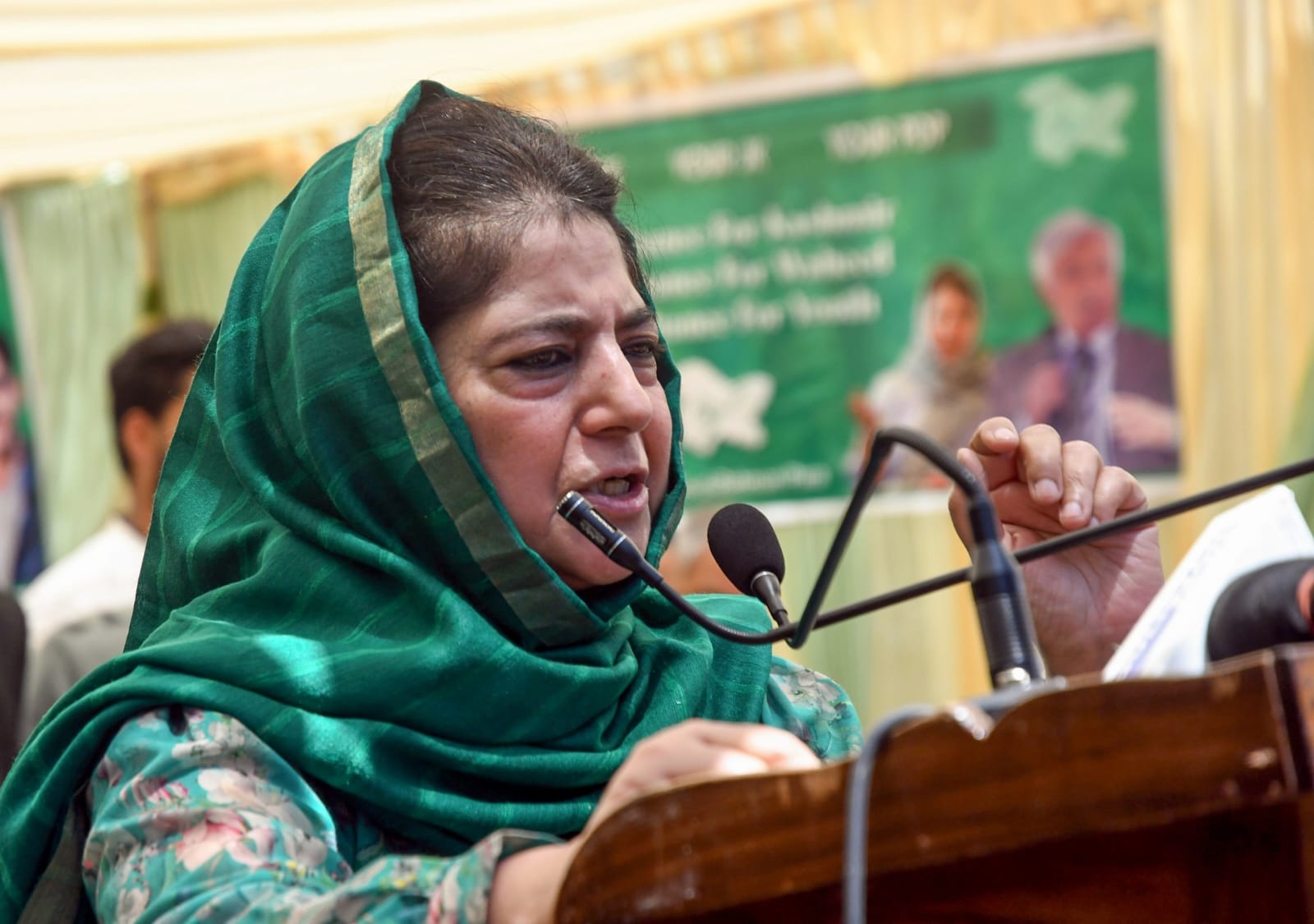
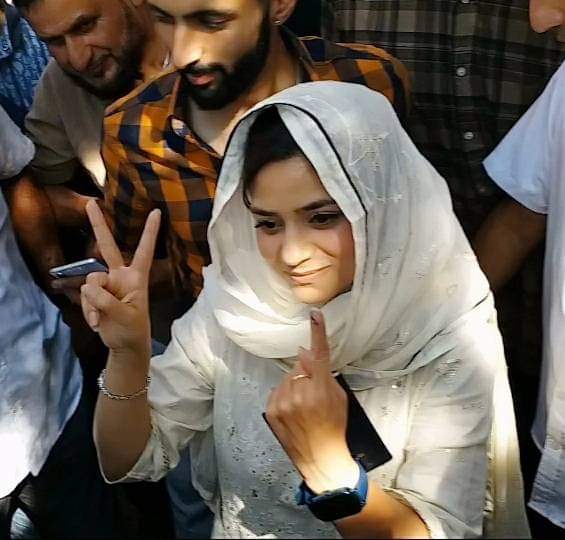
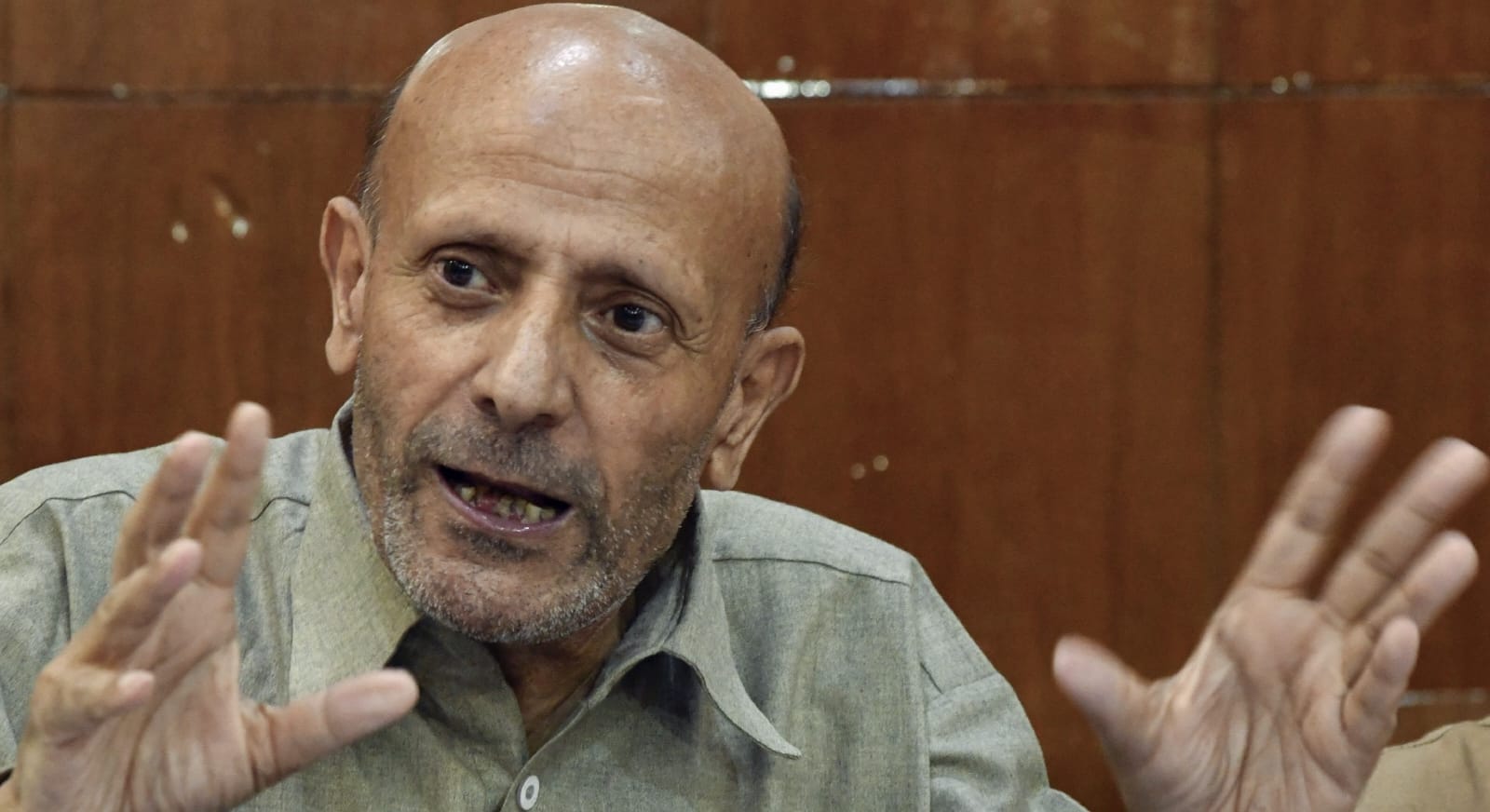
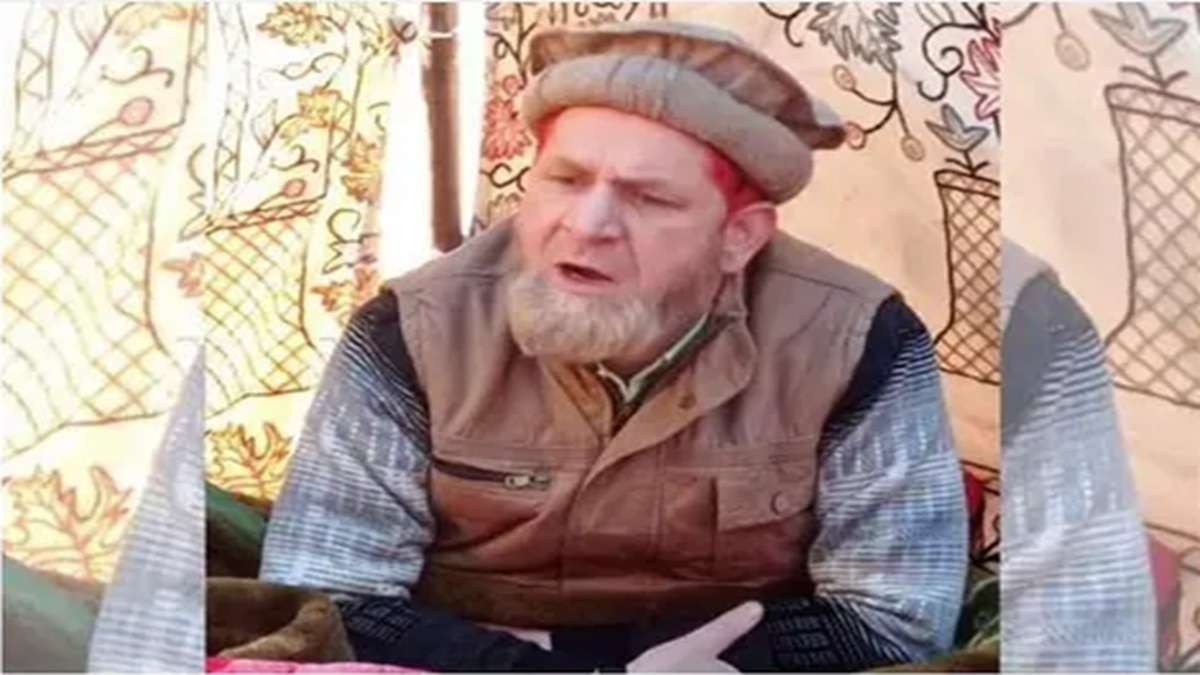
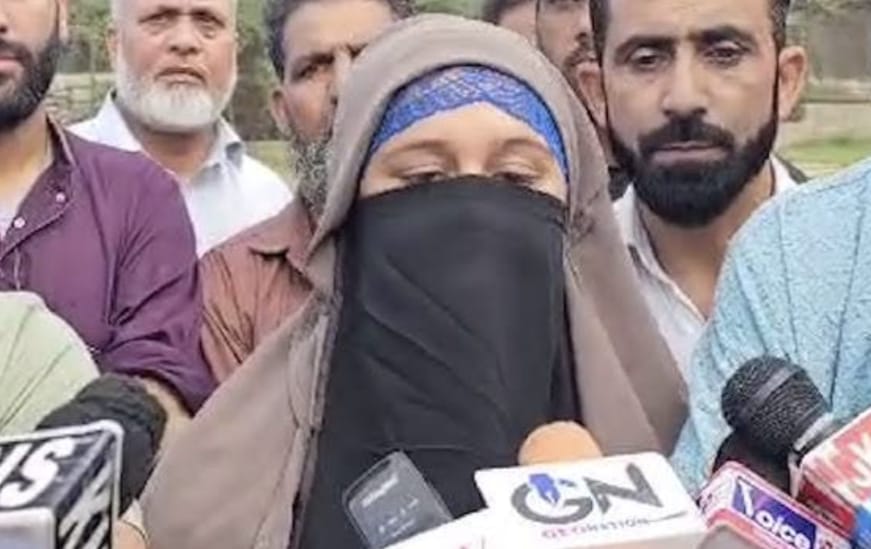
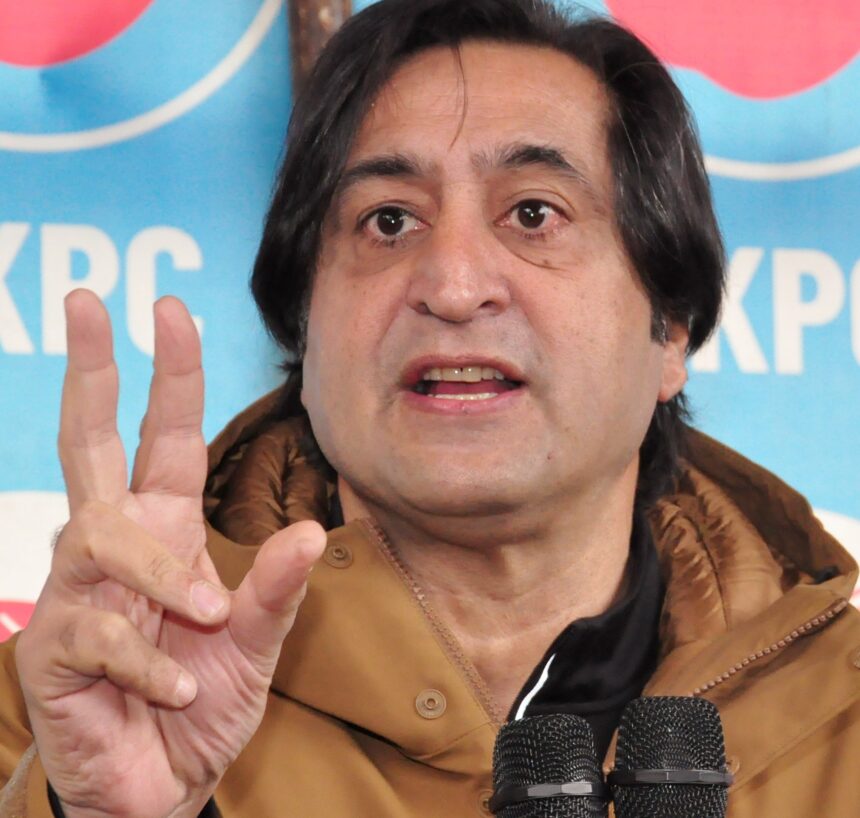
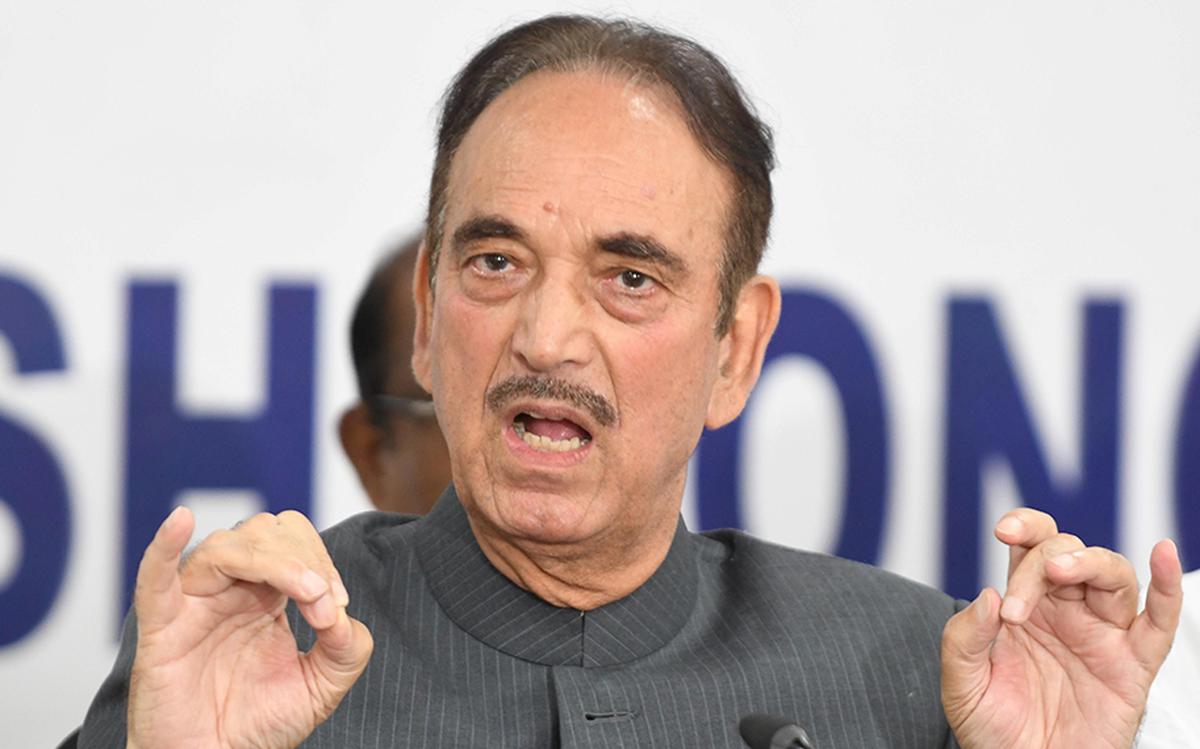
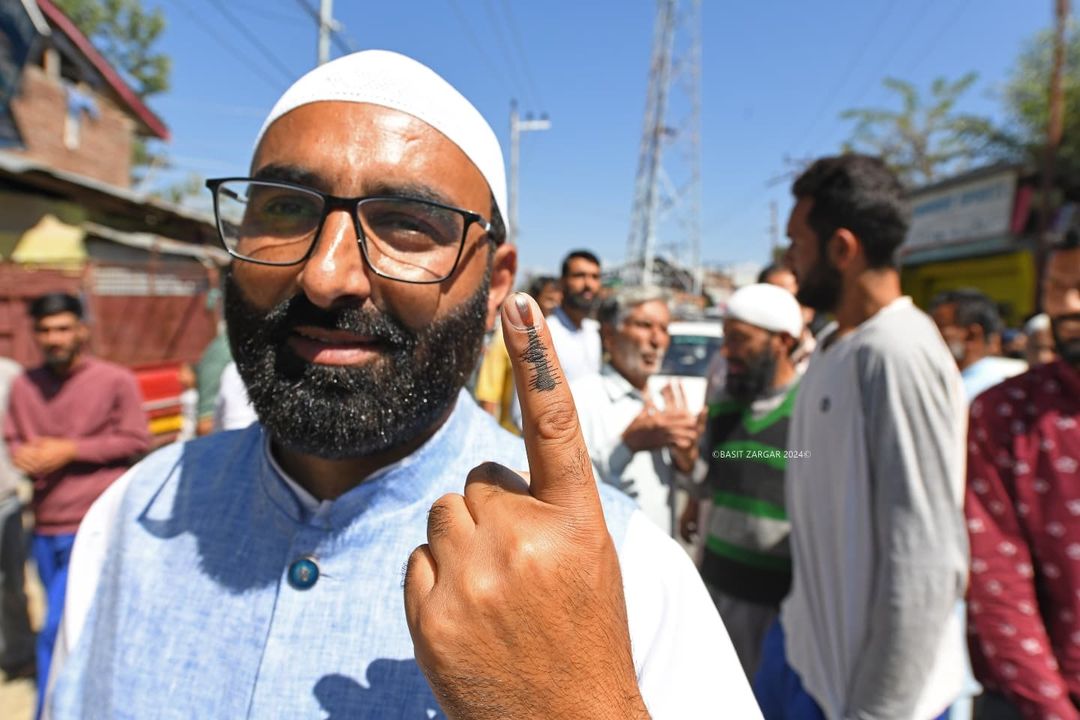
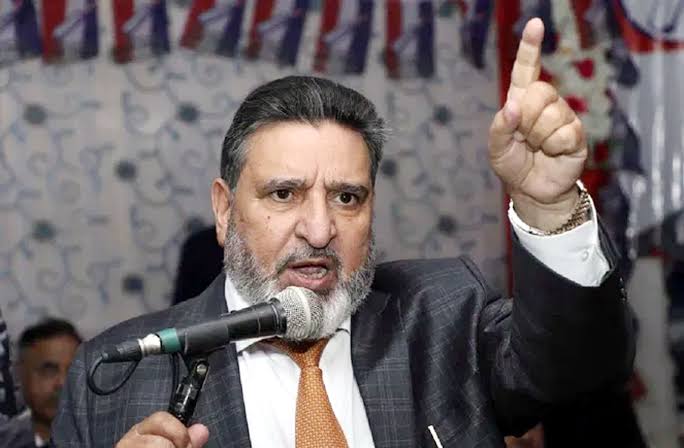
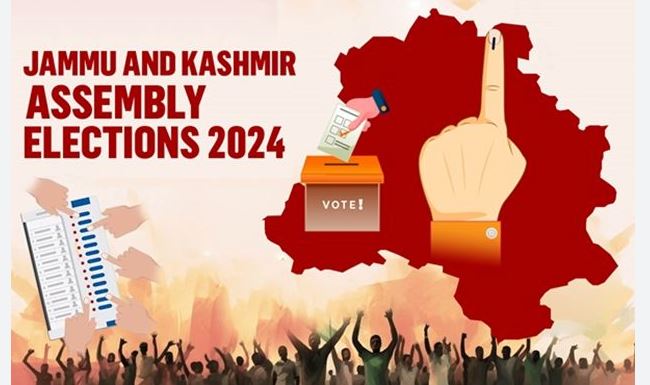
Leave a Reply